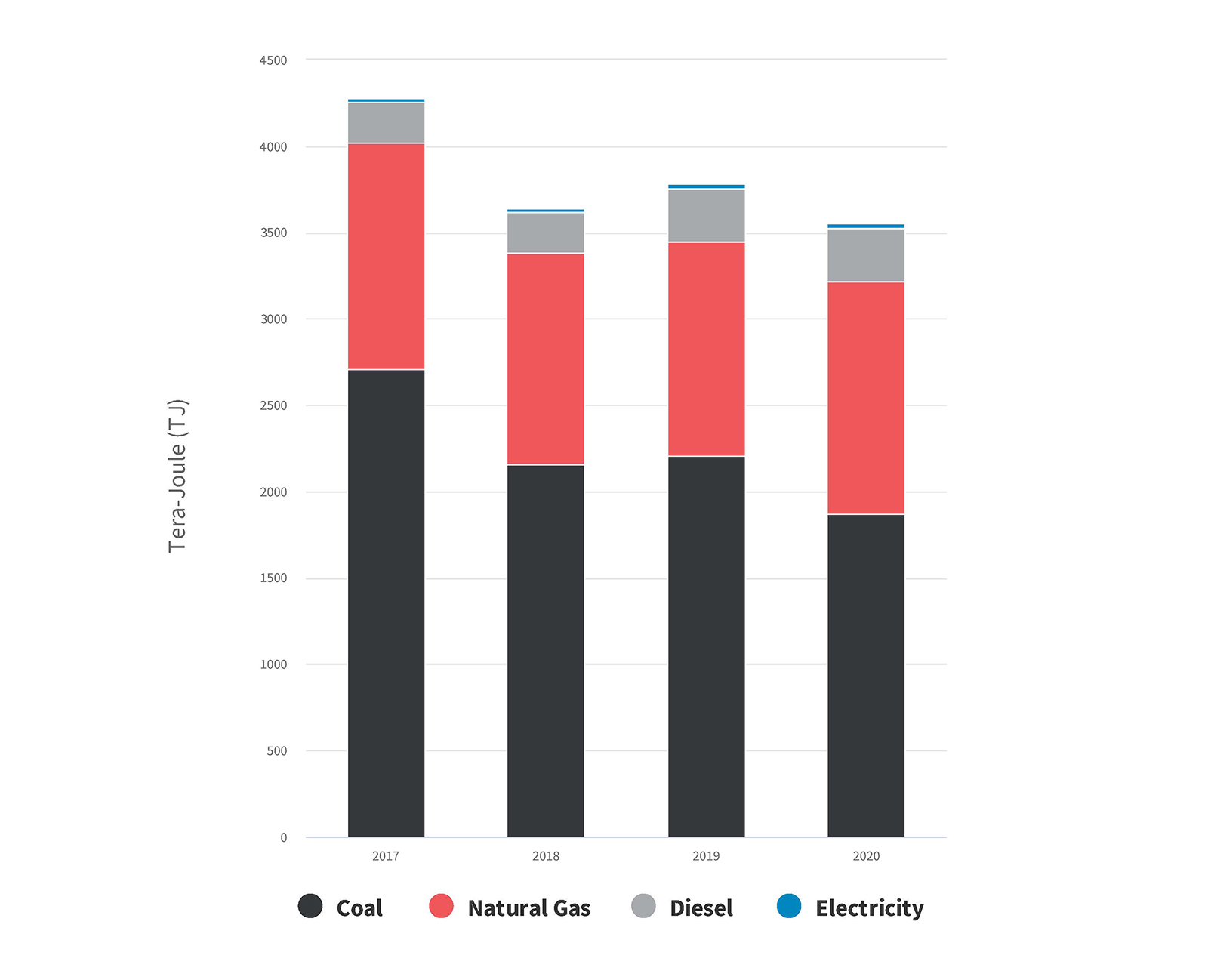New Zealand's leading mushroom grower is committed to reducing carbon emissions
Meadow Mushrooms delivers nine million mushrooms per week to wholesalers, distributors and retailers across the country. That's a lot of mushrooms and a lot of steam to clean and sterilise facilities at the company's main growing and packing site in Hornby, Christchurch.
Steam is commonly used in the mushroom industry for pest and disease management, reducing the need for excessive use of pesticides and chemical sanitisers. As part of the company’s sustainability plan, Meadow is replacing their diesel fired boiler with a low carbon electric option, significantly reducing greenhouse gas emissions.
The project has been co-funded by EECA through the Government Investment in Decarbonising Industry Fund (GIDI). The total cost of the Meadow project is over $1.96 million, with GIDI contributing $400,000.
Meadow has worked with EECA on their energy efficiency plan since 2014 when the company did its first energy audit with Lumen, an energy consulting firm. That audit resulted in significant energy savings.
“Since then we’ve been very aware of our carbon footprint and doing what we can to reduce our emissions,” says Kiri Armstrong, Technical Manager at Meadow Mushrooms.
Fuel use in the indoor cropping sector over time

Planning for sustainability
The GIDI project is one part of Meadow Mushrooms' sustainability plan. The company has moved to using more electric forklifts on site, replaced petrol tractors with electric trucks, improved the efficiency of their chilled water plant and improved insulation. They have also changed their growing room lights to LEDs that have been designed by Meadow Mushroom’s engineers and are considered a world first for mushroom growing. Together with a few other projects, the company estimates it abated or eliminated 320 tonnes of CO2 emissions in 2020 and 2021.
Mushrooms are one of the most sustainably grown foods on the planet. They’re ready to pick in days, require minimal natural resources to grow, and the vertical farming system means they deliver one of the best yields per square metre of land in the agricultural industry. Meadow Mushrooms is the largest producer of fresh mushrooms in New Zealand with five sites and a team of nearly 500 people.
The new low carbon boiler at the Hornby site will result in a reduction in carbon emissions of 32,675 tCO2 over a 25-year lifespan. This is an average annual carbon abatement of 1,307 tCO2-e/year.
“This project is critical to our sustainability plan,” says Darren Patterson, Meadow Mushrooms’ Sustainability Manager. “We’ve got an ambitious plan to eliminate our fossil fuel emissions and reduce our other emissions as much as possible. The replacement of this diesel boiler goes a long way towards meeting that goal.”
Partnering for good
As well as support from GIDI, Meadow Mushrooms received co-funding and assistance from Meridian Energy and Orion that helped get the proposal across the line.
"When we looked at switching to an electric boiler, one of the big red flags was the running costs," says Armstrong. "Meridian offered us a really good deal on the electricity costs while Orion contributed to the electrical design and installation costs. The collaboration with our partners and Lumen, our energy consultants, was key to getting it across the line."
"We're trying our hardest to do our bit to combat climate change and we challenge other companies to do the same. Unless everybody does their bit, we're making it hard for ourselves as a country to meet our climate change targets."
The business good of decarbonisation
Switching away from fossil fuels can have many benefits for business, beyond reducing greenhouse gas emissions.
- Cost savings — reduce operating costs through energy efficiency and fuel switching.
- Social license — improve your reputation with socially responsible consumers and investors.
- Brand value — tap into new markets, spark innovation and create business opportunities.
- Employee engagement — attract and retain talent.
- Compliance — stay ahead of regulation for climate change mitigation.
Read next
-
GIDI: Industrial
Apply for co-investment for decarbonsiation projects related to process heat. GIDI: Industrial supports medium to large businesses to reduce their carbon emissions and transition to clean energy and clever technologies.
-
Covered Cropping Decarbonisation Pathway
We've developed a decarbonisation pathway for the covered cropping sector in collaboration with Tomatoes New Zealand and Vegetables New Zealand to help reduce emissions sector-wide.
-
Clean alternatives to fossil fuelled heat plants
As New Zealand progresses towards a net-zero future, industrial businesses that have existing fossil fuelled heat plants should consider a switch to renewable energy alternatives for generating process heat.
